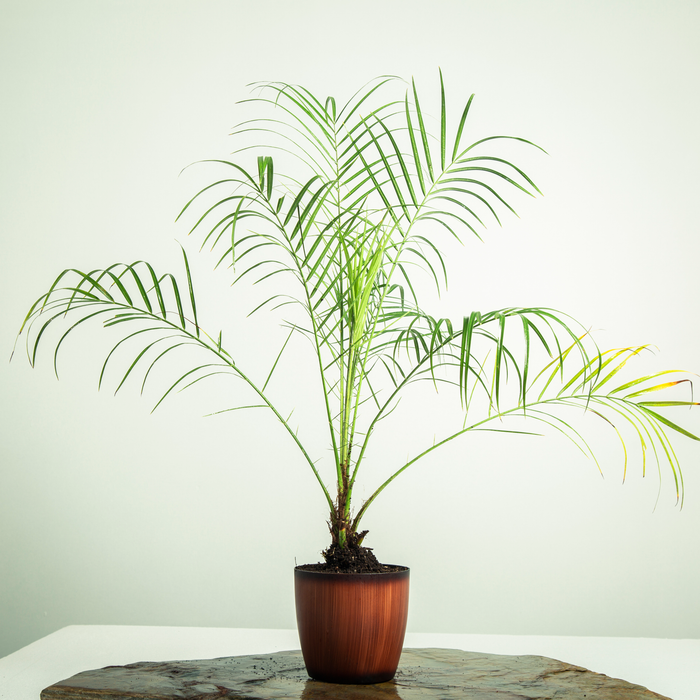
Common Name: Phoenix dwarf palm
Botanical Name: Phoenix roebelenii
Other Names: Dwarf date palm, Pygmy date palm, Miniature date palm, Robellini palm
Origin: China/ Laos/ Vietnam
What’s special?
Phoenix Dwarf is simply an attractive palm which takes its own sweet time to grow. It has got a unique intricate mesh of arching, long leaflets which gives a tropical feel to your interior.
‘NASA Clean Air Study’ project, which researched about ways to clean air in space stations, has listed down the name of ‘Phoenix palm’ as the plant that can help remove harmful air toxins.
If you looking to improve your interior aesthetics and air quality or just wanting to keep something outdoors without committing to a heavy workload, this plant can surely be on your list.
Growth Habits: Up to 5 – 6 feet high
Soil Requirement: Sandy soil that must be moist and well-drained
Watering Schedule: Water regularly to keep the soil moist (Once in a week shall suffice)
Light condition: Prefers medium to high light (2 - 6 hours of direct sunlight a day is sufficient)
Ideal Temperature: Anywhere between 20 - 30 degree Celsius
Repotting instructions: Avoid repotting as the roots of this plant are very sensitive to changes. If repotting is required, be careful of the plant's spines, and use gloves.
Suitable Locations: Room, Conference hall, fence, garden, etc.
Maintenance: Medium
Caring Tips:
- Do not overwater this plant as the roots may start rotting but maintain a regular watering schedule.
- Avoid placing this plant near open windows or balcony during seasons of cold breeze.
- Avoid repotting as far as possible.
- Keep the plant at some reasonable distance from your children and pets so that the sharp spines growing at the base of the fronds should not cause any trouble.




